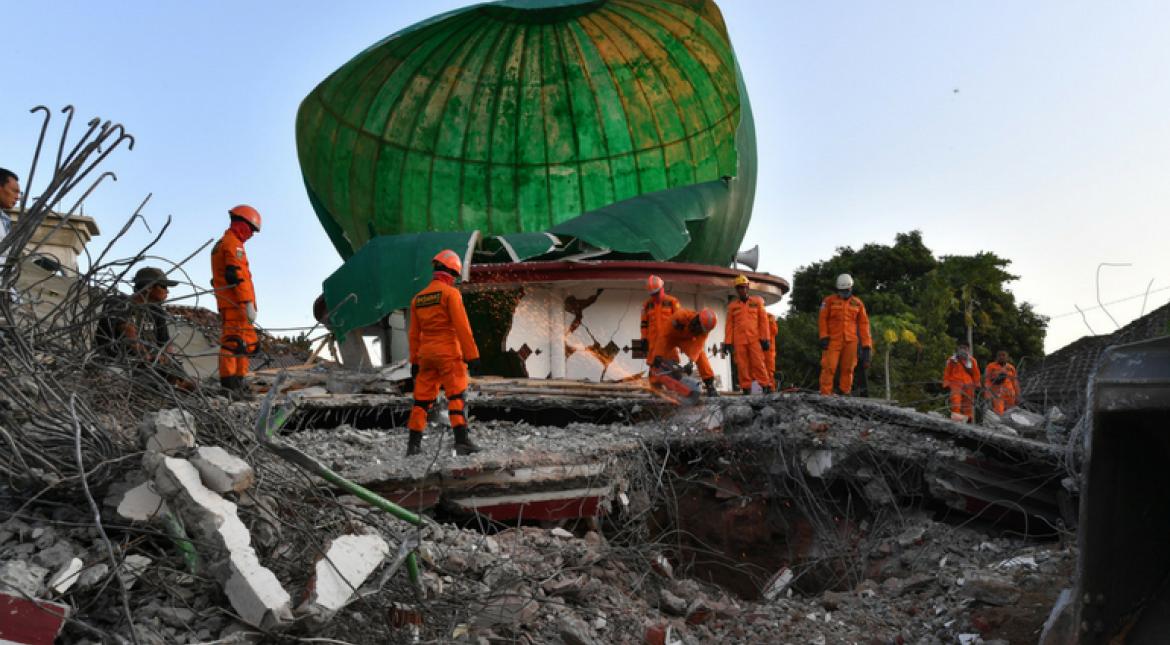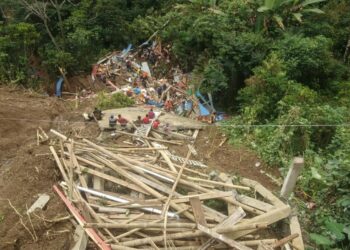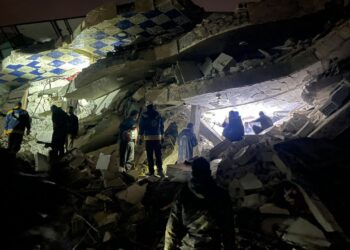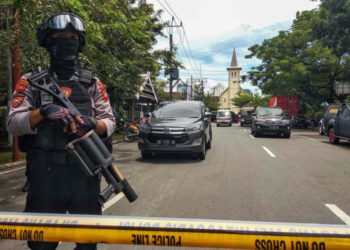Lying in agony with a broken leg at the entrance to a mosque in Lombok, Alimuddin screamed for help as a powerful earthquake brought down the building around him on Sunday.
“I tried to move my leg, lift it up, and that’s when I realised it was broken,” the 49-year-old, who goes by one name, told AFP from a stretcher outside a hospital in Mataram.
It was only by chance that another congregant heard his desperate pleas for help and dragged him from the place of worship.
Alimuddin soon found himself at a nearby hospital, where overstretched medical staff fled his bedside after an aftershock triggered fears of a tsunami.
“I thought ‘Why are they leaving me behind?’ But I couldn’t blame them because they were trying to save themselves,” he said.
The medical staff later returned, only to abandon him again because another patient with a bleeding head wound needed urgent attention.
Alimuddin’s ordeal underlines the chaotic scenes across Lombok, a volcanic island to the east of Bali, after the shallow 6.9-magnitude quake struck Sunday evening.
It killed at least 131 people and damaged tens of thousands of buildings, just a week after another tremor in the holiday island killed 17 people.
More than 70,000 people have been left homeless in the deadly earthquake that hit Indonesia’s Lombok, as authorities appeal for more medical personnel and supplies https://t.co/9F9DeHcWcr pic.twitter.com/Euer5KWgA9
— AFP News Agency (@AFP) August 8, 2018
Hundreds of bloodied and bandaged victims like Alimuddin are being treated outside damaged hospitals in the main city of Mataram and other hard-hit areas. More than 156,000 people were displaced by the quake.
Local authorities, international NGOs and the central government have begun organising aid, but shattered roads have slowed efforts to reach survivors in the mountainous north and east of Lombok, which was hardest hit.
There is a dire need for medical staff, food and medicine in the worst-hit areas, according to Muhammad Zainul Majdi, the governor of West Nusa Tenggara province which covers Lombok.
“We have limited human resources. Some paramedics have to be at the shelters, some need to be mobile,” Majdi told AFP.
First responders are racing to evacuate hundreds of people affected by a deadly earthquake that rocked some of Indonesia's most idyllic islands Sunday night https://t.co/LY1plfqf80 pic.twitter.com/mO4geTQlnJ
— CNN (@CNN) August 6, 2018
The Indonesian Red Cross said it had set up 10 mobile clinics in the north of the island and field hospitals have been established in other areas.
But even in the main city of Mataram, the injured are staying in non-sterile environments and facing long delays for treatment.
Alimuddin was forced to spend the night in a hospital parking lot before he was finally operated on.
His wife Maria Ulfa, who stood vigil, was exasperated by the delay — but Alimuddin was taking a more philosophical view.
“Ultimately I surrender myself to God. This is what we call a calamity and we can’t prevent it,” he said.
This video of an Imam praying through the #IndonesiaEarthQuake touched my heart #Lombok #lombokearthquake pic.twitter.com/J1kZidKBrK
— Karachista (@karachista) August 6, 2018






















